Founder and editor, since 2006, of the French website Buzz littéraire, pioneer in its niche, after working for digital and print media in France (women, culture and BtoB issues), Alexandra, who prefers the Rougon-Macquart series to Netflix, a feminist -dismayed by the invisibilization of women's history and works...-, also holds a Master's degree in English literature (earned at La Sorbonne Nouvelle). Her research interest focuses on the critical discourse and the history of literary ideas in the 18th century that led to the decanonizing of women writers, as well as the construction of authorial persona in the literary and intellectual field. In terms of contemporary works, in complete subjectivity, she cultivates a penchant for the French literature "intimiste", existential and introspective that takes a sharp look at its age's issues and mores. Allergic to elitism as well as to all "declinologues" discourses -ageless-, she does not cringe from venturing, on occasion, into pop culture successes for what they also say about our society :-) Only one motto: open-mind and the least preconceived ideas as possible !
Articles de cet auteur
Interview de Mahtab Ashraf, éditrice et fondatrice de Fougue Editions : « Chez nous c’est le fond qui précède la forme dans nos choix »
A la tête d’une jeune et petite maison d’édition indépendante de littérature contemporaine, Fougue Editions qu’elle a fondé en 2018, avec déjà 14 titres édités, Mahtab Ashraf a publié, entre autres, fin 2019 le premier recueil de poésie de Vincent Zulawski (voir interview) fils de Sophie Marceau. Elle nous présente son parcours, son activité et …
Daniel Defoe on Women’s education (in An Essay Upon Projects): Commentary and Analysis
Analysis, Textual Commentary and Historical context of An Essay Upon Projects by Daniel Defoe : Excerpt from « An Academy for Women » Keywords and themes addressed : Female education debate in 17th and 18th century England, ornamental accomplishements and formal education, women’s intellectual and rational abilities in question, Philosophy and Sex of the mind (Descartes, Poulain …
The Creation of the Man of Feeling : Age of Sensibility and Romanticism in 18th-century England
In the Preface of the Lyrical Ballads, Wordsworth makes this momentous and pivotal statement that “all good poetry is the spontaneous overflowing of powerful feelings”. He goes on to emphasize feelings over action (“it is this, that the feeling therein developed gives importance to the action and situation, and not the action and situation to the feeling”), while Mary Wollstonecraft wrote in an essay “The poet, the man of strong feelings” (Norton Antology).
Gentleman vs. Tradesman according to Daniel Defoe ( The Complete English Tradesman, 1726)
A Textual Commentary of Daniel Defoe
Letter XXII, The Complete English Tradesman, 1726. Of the Dignity of Trade in England more than in Other Countries
In his letter XXII in The Complete English Tradesman published in 1726, Daniel Defoe tackles the issue of the new wealthy middle class competing with the landed élite for social prestige and political power by highlighting the paradox that while being prominent economic contributors, tradesmen were held in ill repute, and often frowned on by the social élite who despised them. A strong proponent of the -moral and material- virtues of trade, he argues that, on the contrary, tradesmen are worthy and respectable in order to rehabilitate their social status.
The Battle over the Figure of Eve : the Advent of a Protofeminist Voice in Early Modern England
The figure of Eve has long been a major focus of attention for theologians, politicians, moralists, instructors, writers or even painters. The -infamous- protagonist of the garden of Eden in the myth of Genesis was a recurrent topic of debate and fuelled countless interpretations which deeply influenced the perception of women and their (god-given) role in the Western Christian societies, and are still deeply-rooted in the popular imagination. Of course these interpretations, along with the myth itself, have been put forward essentially by male authors as a so-called justification of women’s inferiority for men’s interests, in the name of God (Gabel). As Phyllis Trible has pointed out: « Throughout the ages people have used this text to legitimate partiarchy as the will of God. They maintained that it subordinates woman to man in creation, depicts her as his seducer, curses her, and authorizes man to rule over her ». However in the Early Modern period, especially in the 17th century, English women started to claim a public voice to participate in the gender discourse, monopolized by men so far . Despite the male injunction to be silent, they set out to appropriate their so-called « biblical alter-ego » and redress the detrimental literature she inspired.
Analysis of the Poem Mirror by Sylvia Plath: Plunging into the Troubled Water of the Looking-Glass
Mirror by Sylvia Plath was composed in 1961, just before Plath’s twenty-ninth birthday, two years before her suicide. It is part of the volume Crossing the Water. Her first volume of poetry, The Colossus, was released in 1960 but she’s best known for the publication of Ariel in 1965.
Sylvia Plath was a twentieth century American writer and poet, born in 1932. She committed suicide in 1963 at the age of 29 years old. She is generally labelled as a « Confessional Poet » as its poetry depicts her personal states of mind, emotions and pains, imbued with « unconsciousness material ».
The Figure of the Gentleman in 19th century Victorian England : The re-Fashioning of a Manhood Ideal
The Victorian Age is considered to be the Heyday of the gentlemanly ideal, both in society and in literature. Indeed, the Victorian period developed a quasi obsession with gentility and gentlemanliness. In the late 18th century, Edmund Burke already emphasized « the spirit of gentleman » and complained that « The age of chivalry [was] gone… and the glory of Europe [was] extinguished » (« Reflections on the Revolution in France », 1790). The next generation of novelists in the 19th century, Thackeray, Dickens and Trollope, were also all fascinated by its image, and impressed upon society their views on gentlemanliness (Berberich). The problem of the self-made or would-be gentleman -and the contradictions of the English class system- were some of the subjects they explored.
« The Scarlet Letter » by Nathaniel Hawthorne : « (…) if truth were everywhere to be shown, a scarlet letter would blaze forth on many a bosom…” » (2/2)
Second part of the analysis the Scarlet Letter (see first part) by Hawthorne. Here are the main topics that are discussed below : What is a sin ? Exploring the nature of sin (and evil) and biblical allegories; The sin of intellectual freedom by Hester and a sense of feminism in Hawthorne’s work ; Criticism …
« Frankenstein » by Mary Shelley: « (…) Sorrow only increased with knowledge. »
One of the most canonical gothic (and romantic) novel, Frankenstein by Mary Shelley has become, over the decades, a pop icon. It is now sadly best known as a horror movie’s character and a freak of nature that captures popular imagination and haunts modern fictions. At the beginning of 2014, an umpteenth adaptation of the novel (more exactly of a comic book derived from it) in the form of a thriller (a futuristic dystopia), « I, Frankenstein », was released, and panned by critics.


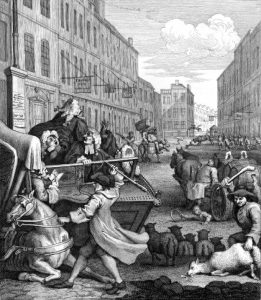
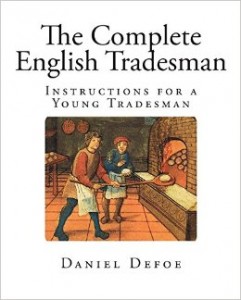
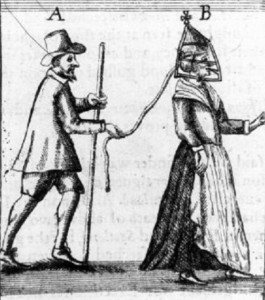

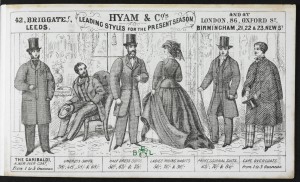
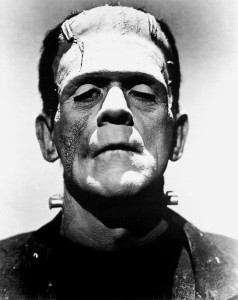












Derniers commentaires